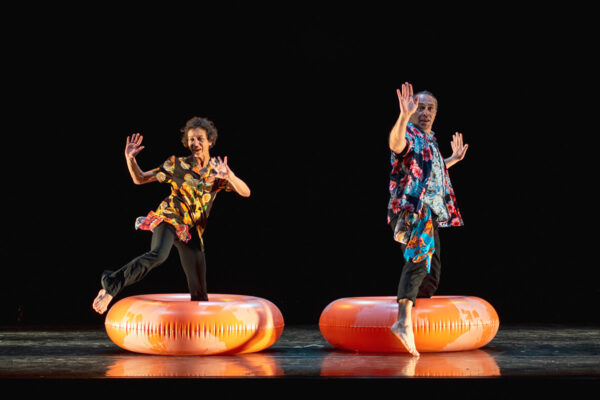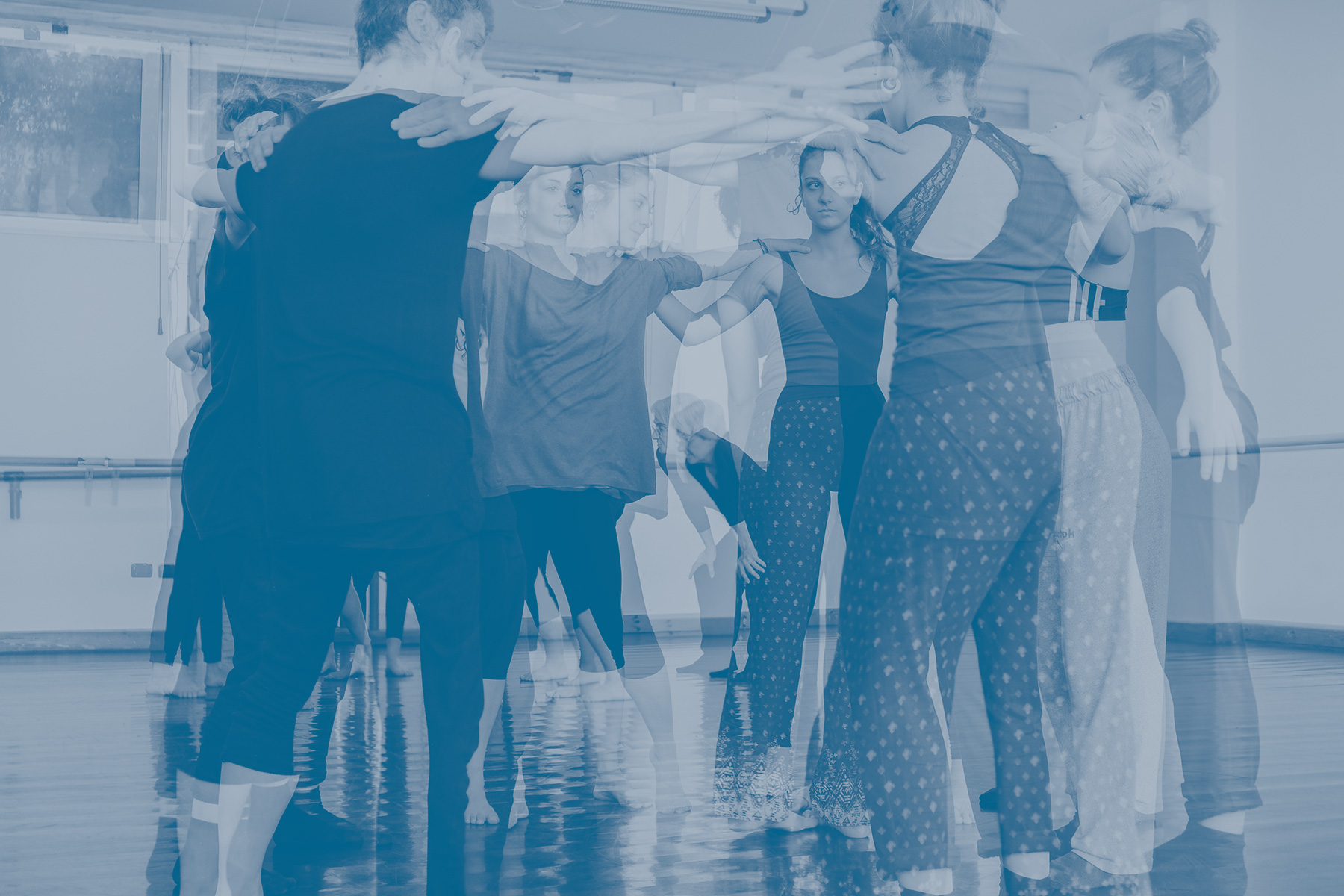The history of Movimento Danza has its roots in an extraordinary experience in the social, cultural and political life of Naples and beyond: the “Mensa dei Bambini Proletari” (Canteen for Proletarian Children).
The Canteen for Proletarian Children was founded in 1972 in the Avvocata neighborhood to fight the severe social degradation that characterized large areas of the historic center of Naples, where many proletarian children were dying of malnutrition, with an average of 70 children per 1,000.
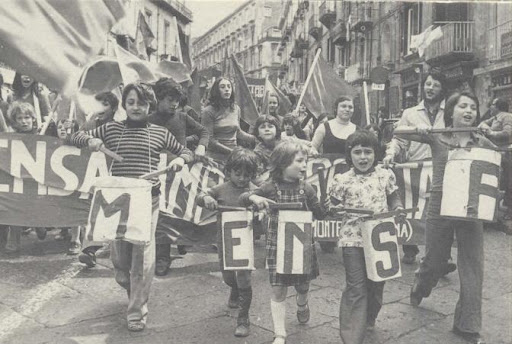
In exchange for a daily meal, children and young people were required to follow a set of rules of behavior and after-school afternoon activities: a simple and immediately successful idea that quickly led to the preparation of some 200 daily meals that guaranteed to many the basic need to be fed.
Created through the collaboration of volunteers of different political orientations, the Canteen for Proletarian Children was an innovative model of extraordinary significance in Italy, supported financially by prominent figures in culture, politics and even industry, including, among many others, Luigi Comencini, Elsa Morante, Norberto Bobbio, Raffaele La Capria, Dario Fo, Franca Rame, Domenico Rea, Eduardo, Peppino and Luigi De Filippo, Adriano Olivetti and Giorgio Falck.
From the experience of the Proletarian Children’s Canteen, which ended in its original form in 1976, several other initiatives were subsequently born, including the “Scuola Popolare di Musica di Montesanto” (Montesanto Popular School of Music). Founded in 1979 in the same spaces of the Canteen for Proletarian Children, the School organized music courses open to all, at a cost of 1,000 liras a month, with extraordinary teachers such as Lucien Basse, Daniele Sepe, James Senese and Pino Daniele, to name a few. The initiative had an exceptional response and the school soon became not only a place for music but also for gathering and discussion, without prejudice or barriers, in which everyone could easily access not only music but, more generally, art and culture.
A young and as yet unknown Gabriella Stazio proposed herself for a contemporary dance course, and the idea was immediately accepted. The course reached about 600 members in a few months, both young people and adults, from all backgrounds, and it soon became clear that dance activities needed a dedicated place and an autonomous organizational structure. Hence the idea of creating Movimento Danza Association, founded by Gabriella Stazio in 1979 together with Paolo De Martino, who chose the name, Cynthia Fiumanò, Silvana Spina and many others.
Born in a historical period of great social participation and a city of great cultural contamination, Movimento Danza was born with a mission focused on inclusion and dialogue. A mission that it still keeps unchanged today, varying every year the projects and paths to achieve it.
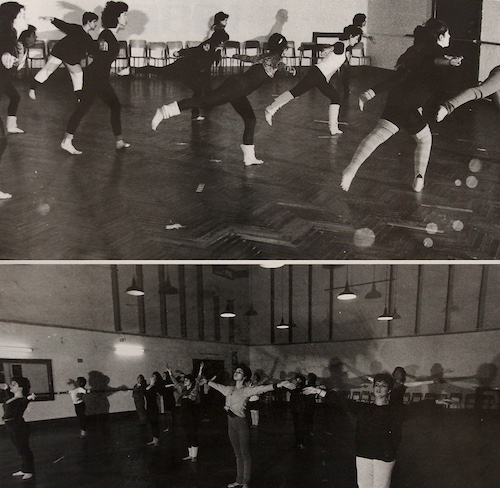
With Movimento Danza, in the 1970s and 1980’s, contemporary dance and all that was not classical dance finally found a home in Naples, with classes, workshops and performances held between the William Reich Center on Via San Filippo and in the historic Teatro Nuovo di Napoli. The association launched a series of training and performance courses that are completely unprecedented not only for the South but also for a large part of Italy. Movimento Danza promoted the first contemporary dance workshop in Campania with Roberta Escamilla Garrison; the first contemporary dance company in Southern Italy, Movimento Danza, initially was composed only of women; the first workshops and performances of postmodern dance in Naples, with Molissa Fenley, Jim Self and Charles Moulton; the lecture-shows of the Teatrodanza Contemporanea company in Rome, directed by Elsa Piperno and Joseph Fontano; the first crowded workshops and performances of contact improvisation, with Laurie Booth and Ronald Bunzl; the first contemporary dance festival in Campania, in 1984, named “Enterprise,” then continued to the present as “Second Hand – Di seconda mano“ an important point of reference for Italian choreography.
All of Movimento Danza‘s activities were self-financed through classes and ticketing. Among the many students in the first years of activity were directors such as Pappi Corsicato, actors such as Iaia Forte and Antonello Cossia, musicians such as Riccardo Veno, singers such as Maria Pia De Vito and art curators such as Eduardo Cicelyn Comneno, all driven by the desire to participate in the “great game” of contemporary art in Naples.
Movimento Danza, then, from its inception established itself as a pole of attraction for anyone who wanted to experience a new dimension of feeling and being one’s body.
The association, after all, was one of the first in Italy to offer dance classes for adults, along with classes in aikido, yoga and other disciplines dedicated to movement. All of these courses have no limits of age, ability or gender.
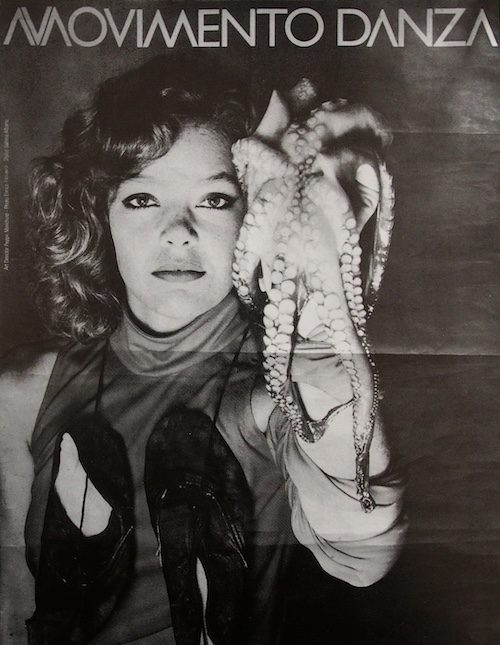
Movimento Danza also brings dance out of theaters and halls and into people’s daily lives, organizing site-specific choreographic events on the street or in unconventional places, with many places in Naples becoming “living” locations for historic performances such as those of ZAC – Zona di Attacco Creativo.
The goal of broadening access to dance practice as much as possible has also been pursued over the years with annual scholarship programming, periodic course enrollment concessions, DanceAbility classes and workshops, and unrestricted open classes.
Thanks to Movimento Danza, more and more people are also approaching dance from year to year through open days and free classes, open rehearsals, workshops open to all, thematic meetings and conferences, competitions for schools, and editorial publications, including the popular free web dance magazine Campadidanza.it.
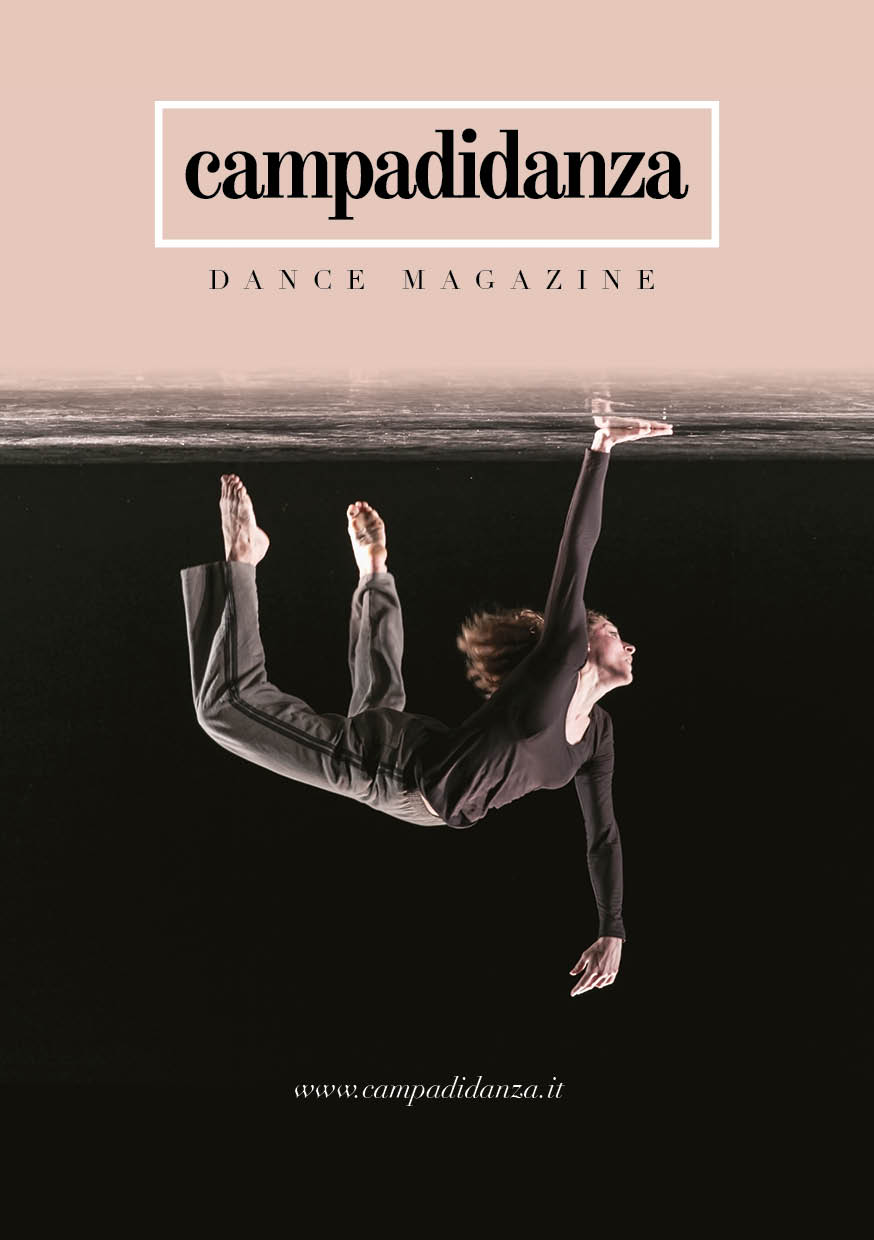
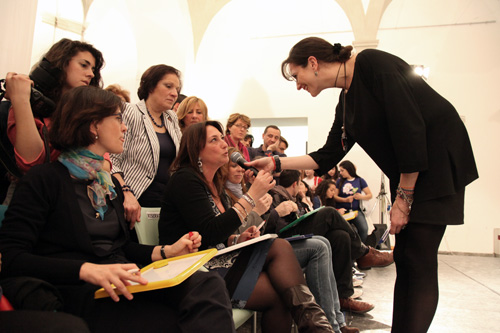
The event that most represents this popular and inclusive approach is undoubtedly the Giornata Mondiale della Danza, the Italian version of the International Dance Day established by UNESCO, introduced in Italy by Movimento Danza more than 20 years ago with a successful format later replicated and imitated in many other cities, based on performances, meetings, public interviews, master classes, workshops and lessons for every age, level, technique and style. All strictly free and held in multiple locations, from theaters to museums, from schools to cultural centers, in parks, squares and streets.
In this regard, it should also be mentioned that Movimento Danza has always fostered reconnection between urban and peri-urban areas, as well as between the center and marginal areas of the city of Naples. The workshops and performances of Movimenti Periferici Danza Festival, for example, thanks to their contents of strengthening cultural identity, regeneration and polycentricity, contributed to a rebalancing of values and identity between the periphery and the other areas of the City.
For that matter, in the same perspective of territorial rebalancing, it can be said that Movimento Danza has been and continues to be an extraordinary tool for the enhancement of energies and skills present in Southern Italy, where training and job opportunities are numerically and qualitatively significantly lower than in Central and Northern Italy, territories that attract thousands of young emigrants every year.
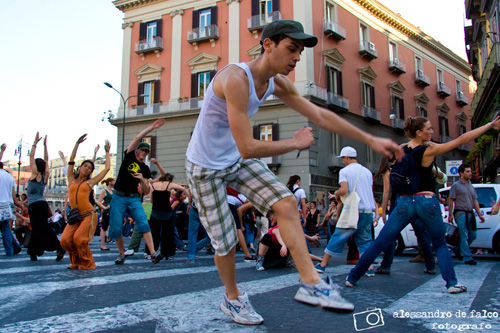
With a particular focus on the South, in fact, Movimento Danza conducts a constant scouting activity to identify young talents to be supported, whether dancers, choreographers, performers or teachers.
The goal is to foster the generational turnover of artists, through comparison and sharing between juniors and seniors, qualified training activities, direct experience in the field, support actions and international projects.
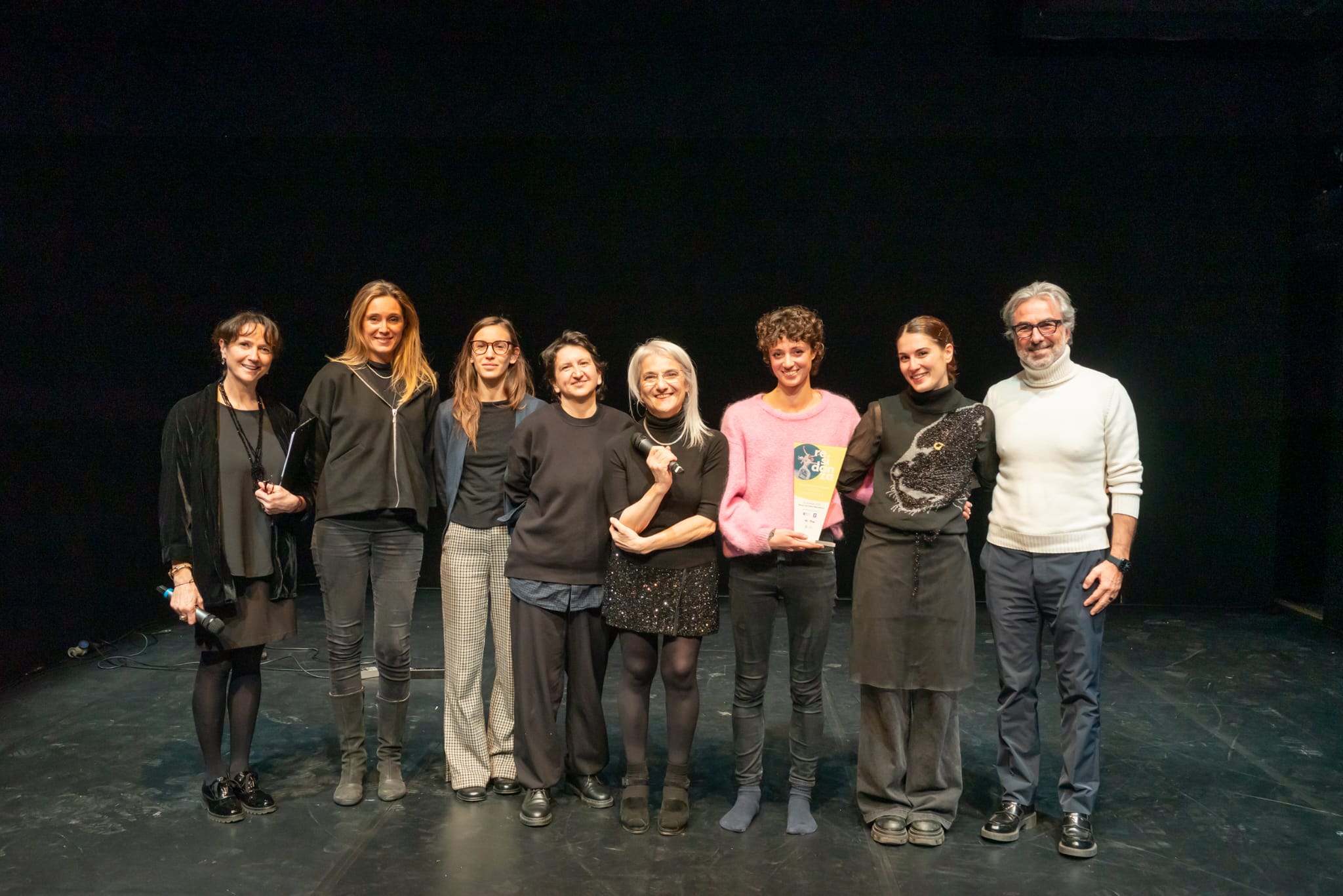
Numerous calls and initiatives for under 35s involve hundreds of artists from all over Italy each year through artistic residencies, competition-shows, presentations and training experiences. Examples include the artistic residency calls RESIDANZA – La Casa della Nuova Coreografia and RESIDANZA b-side, the historic contemporary dance review SECOND HAND – Di Seconda Mano, the online format NU.DA. – Nuova Danza, an original web streaming event that promotes young Italian choreography, the video dance call CAM CAM – Dance for camera, and the DanceCrossing project, a collaborative network that promotes more sustainable models for mobility, promotion of artists and circulation of works, through partnerships and sharing of practices, experiences and skills.
The same collaborative approach, moreover, characterizes the international projects of which Movimento Danza is the lead partner (e.g., NU.DA. Live! | Contemporary Choreographic Experiences, a project that aims to internationalize the careers of young Italian choreographers under 35) or a partner (e.g., Dancing Together, Again!, a creative residency project promoted by the National Institute of Music and Dance in Warsaw).
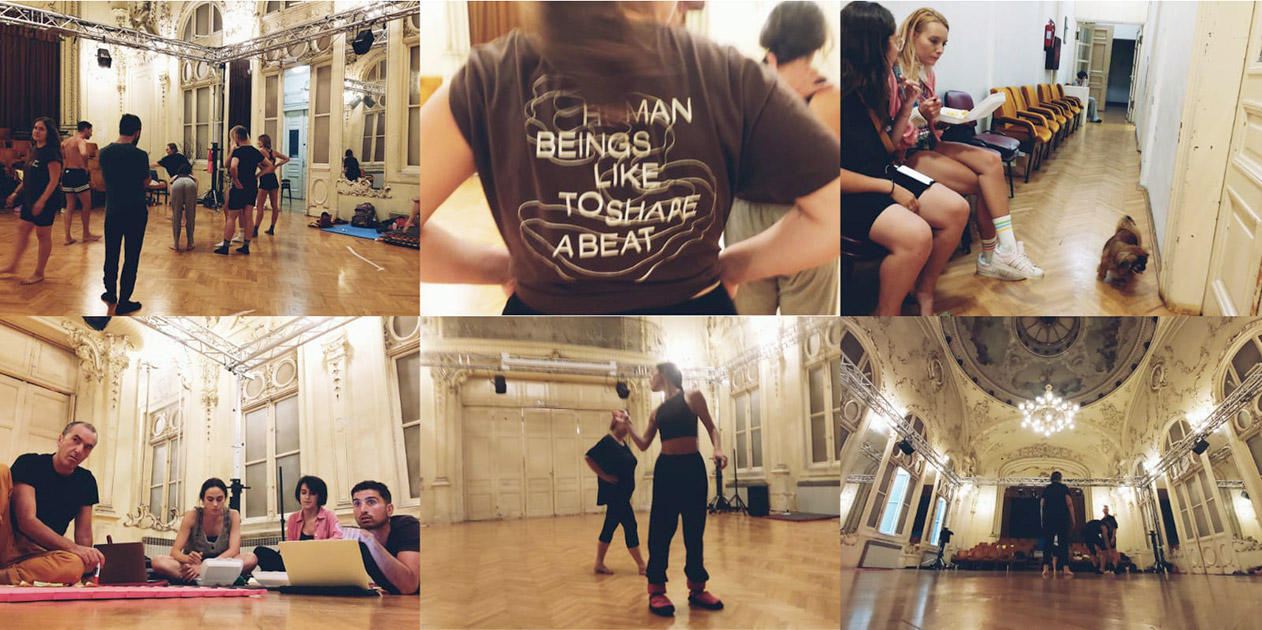
So as the projects born under the Culture 2000 Framework Program, promoted by the European Union, in which Movimento Danza has participated as a partner with other renowned dance organizations such as Pina Bausch’s Tanztheater in Wuppertal, Ballet Victor Ullate in Madrid, the Laban Center in London, the Onnagatarea Company in Brussels and Mediascena Europa in Rome.
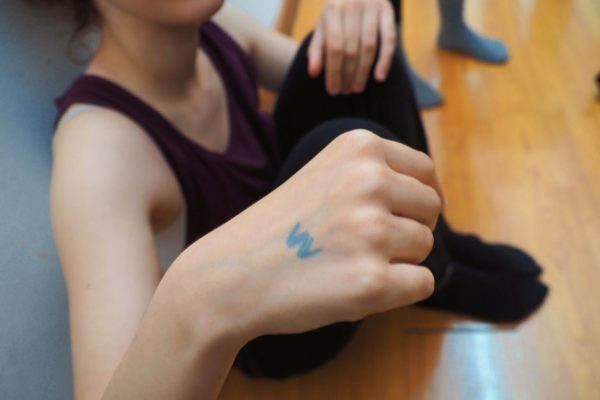
Another aspect to highlight is that, in all its activities, Movimento Danza has always promoted gender equality and the empowerment of women and girls, on the one hand, by ensuring equal access and representation in courses and events, and on the other hand, by building a work team where women are absolute protagonists of countless successes and awards.
Since 2000, the Movimento Danza Association has been recognized by the Italian Ministry of Culture as a “National Dance Promotion Organism“, the first and only one in Southern Italy.
In 2024, the Association turns 45 years old.
45 years of uninterrupted and multifaceted activity to promote dance not only as an artistic discipline but also as an extraordinary tool for personal and social growth.
45 years of love for dance, a love without limits and without barriers.
Movimento Danza is also the name of the company founded in Naples in 1981 and directed by Gabriella Stazio, one of the first, most beautiful and long-lived Italian contemporary dance experiences. A world-renowned and award-winning dance company with a youth section among the most dynamic and creative in Italy.
